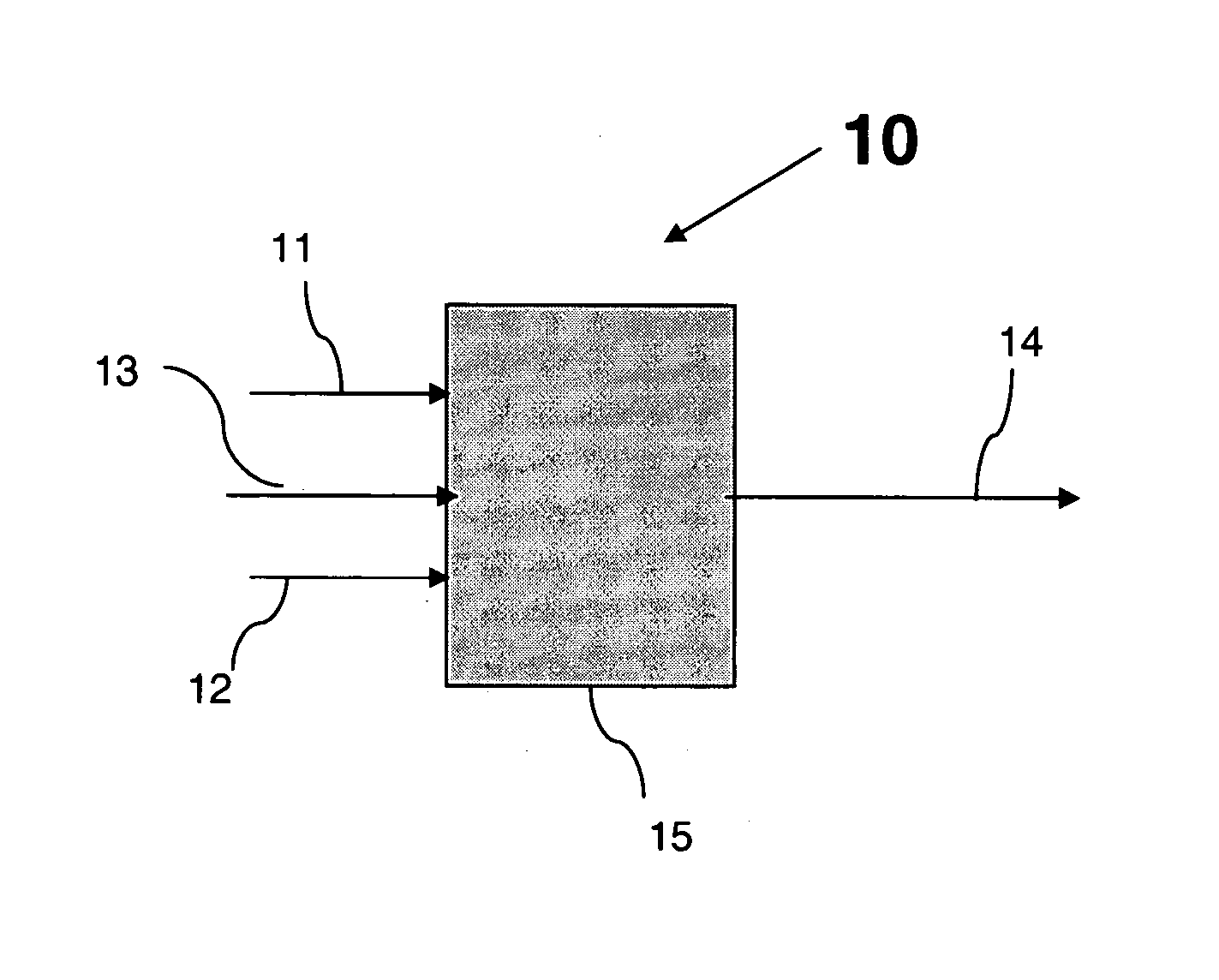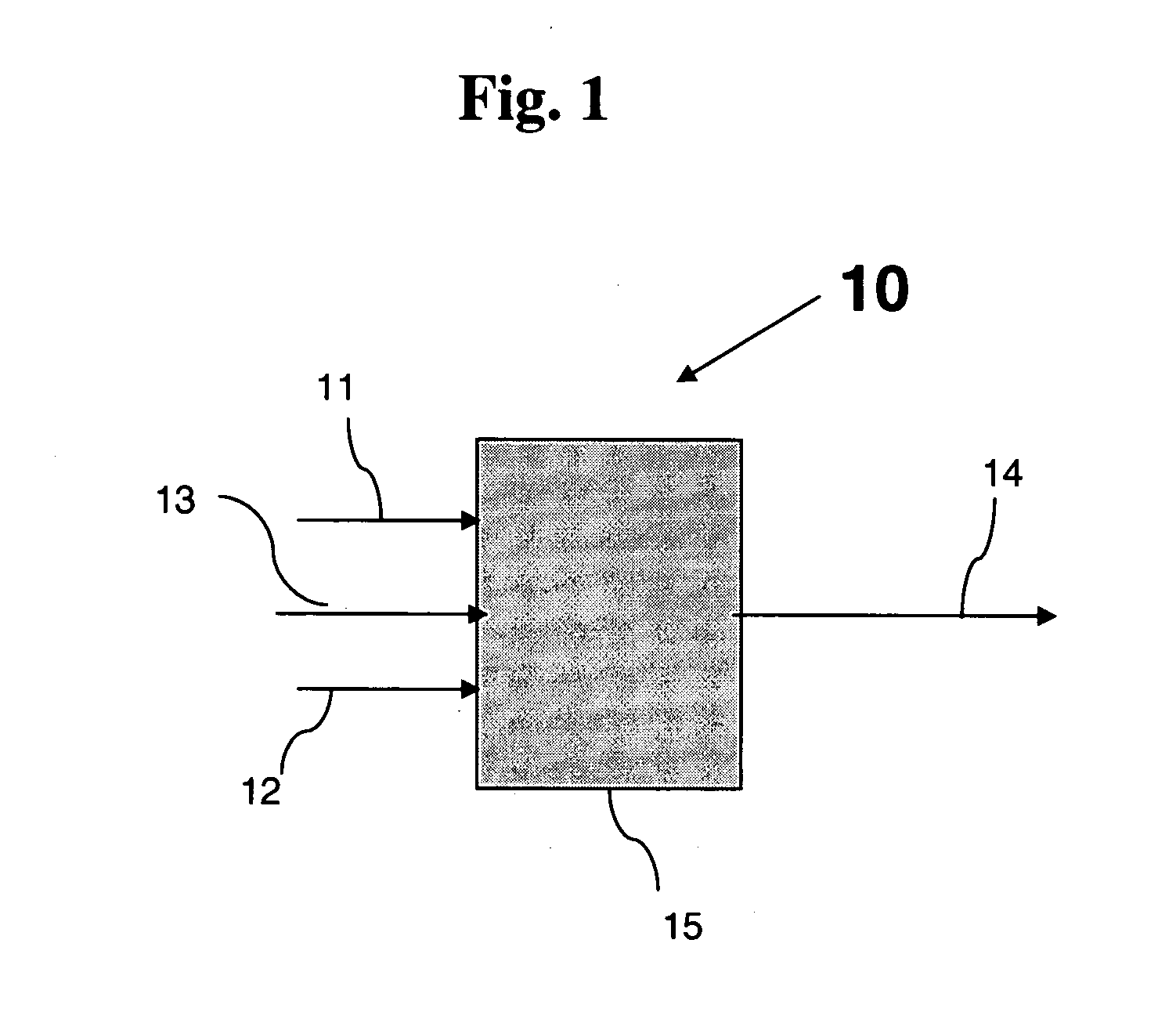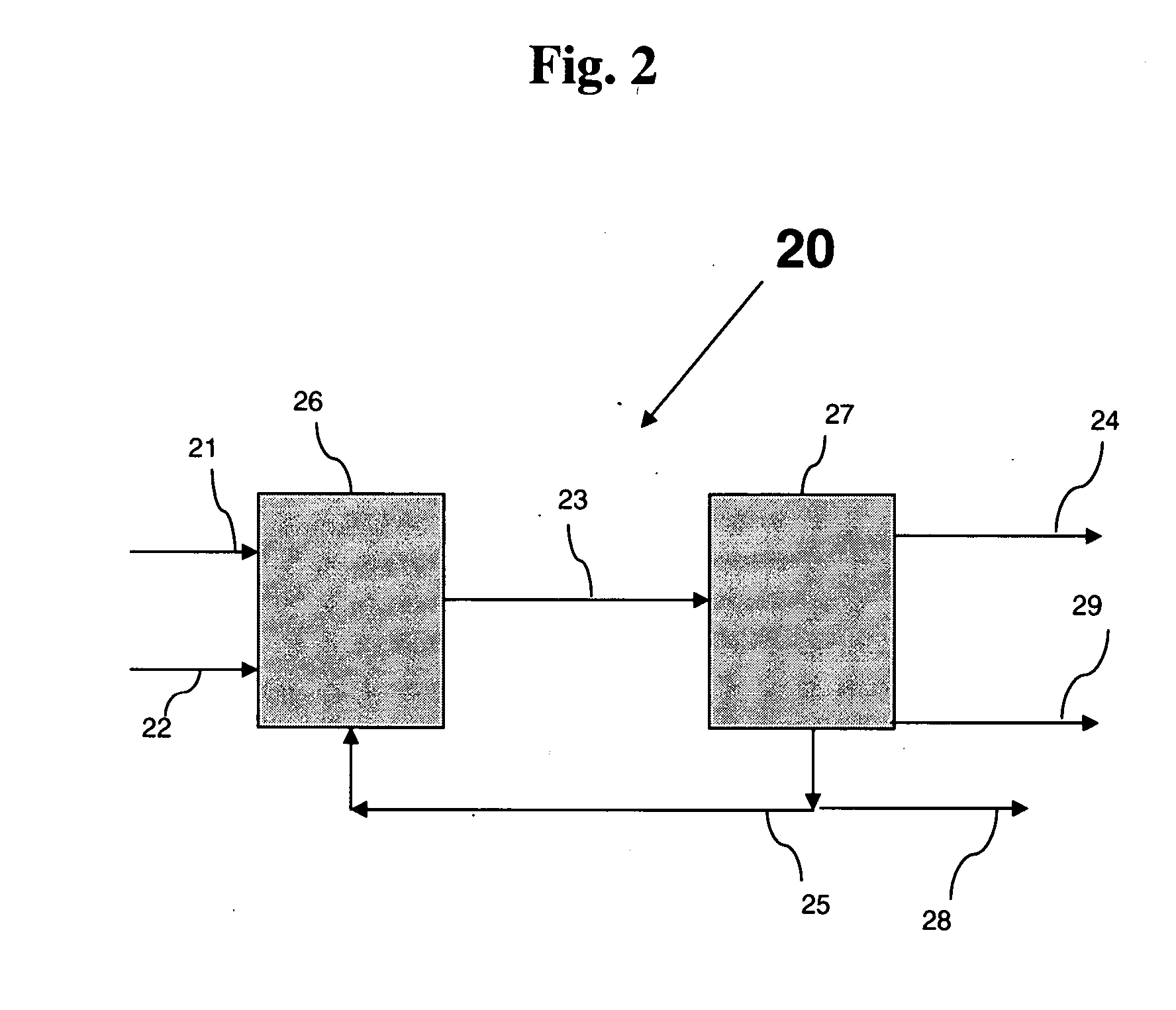Process for the conversion of a crude glycerol, crude mixtures of naturally derived multicomponent aliphatic hydrocarbons or esters thereof to a chlorohydrin
a technology of multicomponent aliphatic hydrocarbons and chlorohydrins, which is applied in the field of process for converting multicomponent aliphatic hydrocarbons or ester thereof to chlorohydrins, can solve the problems of less practicable route, increased manufacturing cost, and substantial amount of chlorinated by-products, and achieves faster conversion, improved process economics, and high selectivity
- Summary
- Abstract
- Description
- Claims
- Application Information
AI Technical Summary
Benefits of technology
Problems solved by technology
Method used
Image
Examples
example 1
Preparation of a Chlorohydrin from Glycerol
[0117] To a 100 mL Hastelloy C™ Parr reactor equipped with a Magnedrive stirrer, internal cooling coils, and a thermocouple were added glycerol (30.0 g, obtained from Sigma-Aldrich Chemical Corporation) and glacial acetic acid (4.5 g, obtained from JT Baker Corporation). The reactor was sealed, pressurized to 90 psig with anhydrous hydrogen chloride gas (Airgas Corporation), and heated to 93° C. for 90 minutes and maintained at 90 psig with anhydrous hydrogen chloride gas, after which the reactor was cooled and vented at room temperature (about 25° C.). The reactor contents (65.9 g) were collected, analyzed by gas chromatography (GC), and found to contain the following products: 1,3-dichloropropan-2-ol and its acetate ester (total 92.6 mole %) and 2,3-dichloropropan-1-ol and its acetate ester (total 1.7 mole %). Additionally, a number of monochlorinated compounds (total 4.4 mole %) were detected as well as unreacted glycerol and its esters...
example 2
Preparation of a Chlorohydrin from Glycerol / Glycerol Ester Mixture
[0118] To a 200 mL Hastelloy C™ high pressure reactor was added a 10 mL glass volumetric flask containing dry glycerol (Aldrich pre-dried over mol sieves, 91 mg, 0.99 mmol), and triacetin (Aldrich, the tri-acetate ester of glycerol, 457 mg, 2.10 mmole). The reactor was sealed and pressurized with nitrogen to 40 psig (three pressure cycles) and was brought to 110° C. with stirring after nitrogen venting. Anhydrous HCl was introduced at a constant pressure of 76 psig and the reaction was allowed to proceed for 3 hours. The reactor was vented providing a product that was found to contain 25.90 area percent 1,3-dichloropropan-2-ol, 68.34 area percent 1,3-dichloro-2-acetoxypropane, 1.57 area percent 1,2-dichloro-3-acetoxypropane, 2.86 area percent 2-chloropropane-1,3-diacetoxypropane and no detectable glycerol, triacetin or 1,2,3-trichloropropane as determined by GC flame ionization detection analysis.
example 3
Preparation of a Chlorohydrin from Crude Glycerol
[0119] To a 100 mL Hastelloy™ C Parr reactor equipped with a Magnedrive stirrer, internal cooling coils, and a thermocouple, were added crude glycerol (30.0 g, obtained from Interwest Corporation) and glacial acetic acid (0.6 g, obtained from JT Baker Corporation). The reactor was sealed, pressurized to 120 psig with anhydrous hydrogen chloride gas (Airgas Corporation), and heated to 120° C. for 90 minutes while maintaining the pressure at 120 psig with the anhydrous hydrogen chloride gas. After this time, the reactor was cooled and vented at room temperature. The reactor contents (57.2 g) were collected as a mobile liquid containing a suspended white solid.
[0120] The procedure as described above was repeated and 58.0 g of reactor contents were collected from a second reaction. The two reaction products (57.2 g and 58.0 g) were then combined.
[0121] After filtration to remove the white solids, sodium and potassium salts introduced w...
PUM
| Property | Measurement | Unit |
|---|---|---|
| temperature | aaaaa | aaaaa |
| temperature | aaaaa | aaaaa |
| temperature | aaaaa | aaaaa |
Abstract
Description
Claims
Application Information
 Login to View More
Login to View More - R&D
- Intellectual Property
- Life Sciences
- Materials
- Tech Scout
- Unparalleled Data Quality
- Higher Quality Content
- 60% Fewer Hallucinations
Browse by: Latest US Patents, China's latest patents, Technical Efficacy Thesaurus, Application Domain, Technology Topic, Popular Technical Reports.
© 2025 PatSnap. All rights reserved.Legal|Privacy policy|Modern Slavery Act Transparency Statement|Sitemap|About US| Contact US: help@patsnap.com



